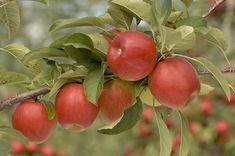
New Zealand’s growers are forecasting a smaller, later crop of apples in 2010.
According to industry body Pipfruit New Zealand, the total apple and pear export crop is expected to fall by 15 per cent on last year's volumes.
Figures released on Wednesday estimate a crop in the range of 261,000-266,000 tonnes compared with 308,000t in 2009.
Pipfruit NZ chief executive Peter Beaven said: “This spring and summer have delivered challenging growing conditions in both Hawkes Bay and Nelson… We had a very early start to flowering following a warm August, but the spring conditions during October and November were characterised by cold weather, rain and some hail. Luckily much of the hail came before growers had thinned their crops, so many were able to remove much of the damaged fruit.”
The outcome means a lighter, later crop. Harvesting of Royal Gala, the earliest cultivar, is expected to start for most growers in Hawkes Bay during the third week in February - a week later than recent season averages.
This season is also likely to be marked by a significant change in the variety mix. Braeburn volumes are forecast to fall in 2010 by a quarter to a third on 2009 and Gala is forecast to decline by 15 per cent. This means that for the first time in almost two decades, these two varieties that have become the mainstays of the NZ industry will make up less than 60 per cent of the expected volume and less than half of all plantings.
The reason for the decline in Braeburn is not just a swing to new varieties, but also the fact that it has been the hardest hit by the difficult growing conditions. Jazz volume is expected to climb by 28 per cent to 1.4 million cartons, while Cox is forecast to fall by 19 per cent on 2009 to 310,857 cartons.
Growers are optimistic about the market despite their difficulties in the production period. Beaven said: “New Zealand’s reputation as a reliable supplier of high-quality, well-coloured, safe apples and pears enables us to command premium prices in all markets,”
Indeed 65 per cent of all NZ orchards have now adopted the Apple Futures ultra-low residue programme and a further 10 per cent are producing organic fruit. Beaven said: “I am confident that the success of this programme will maintain New Zealand producers’ place at the head of low-input, high-quality technology. This programme confirms the New Zealand apple and pear industry’s commitment to develop safe and sustainable growing practices.”